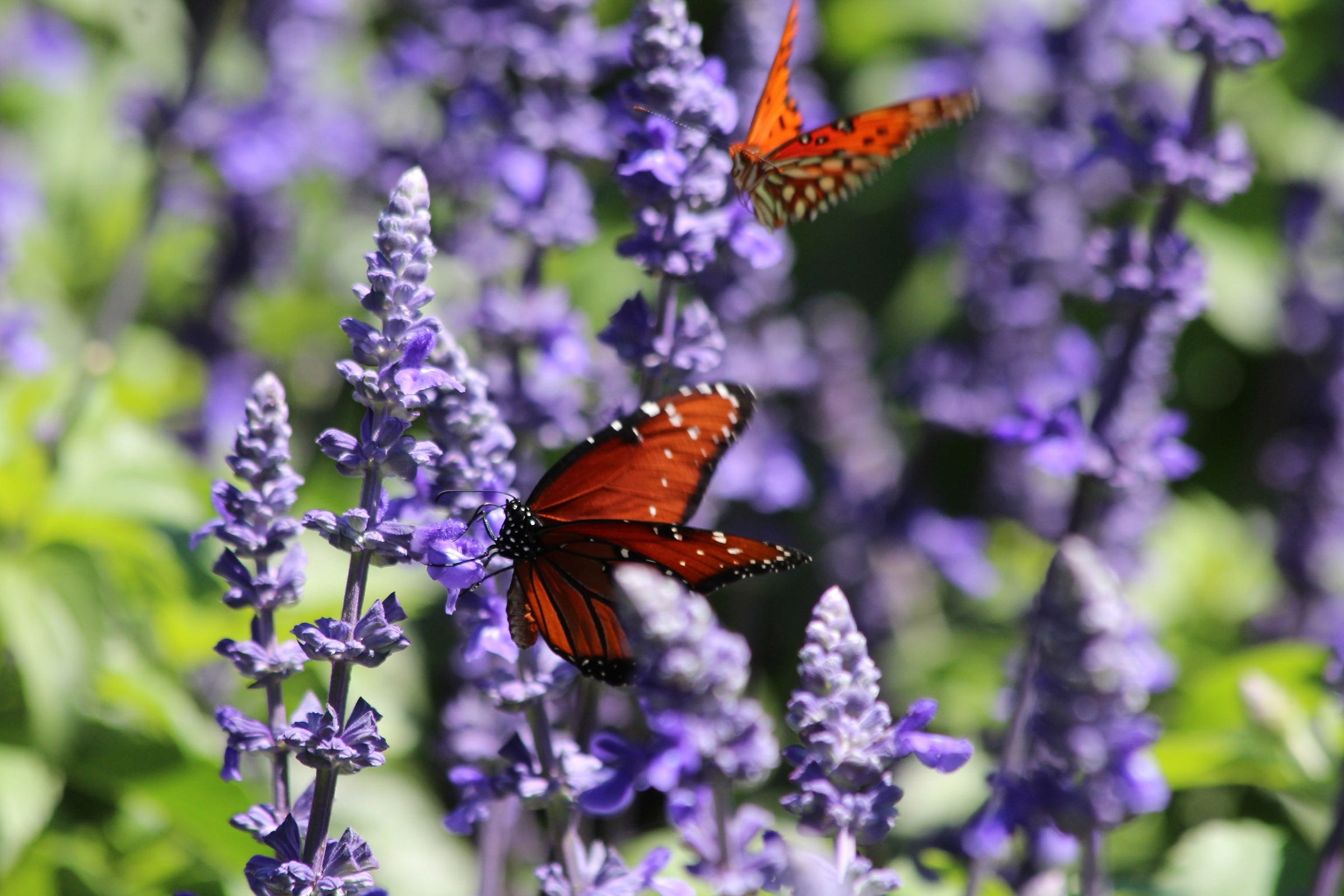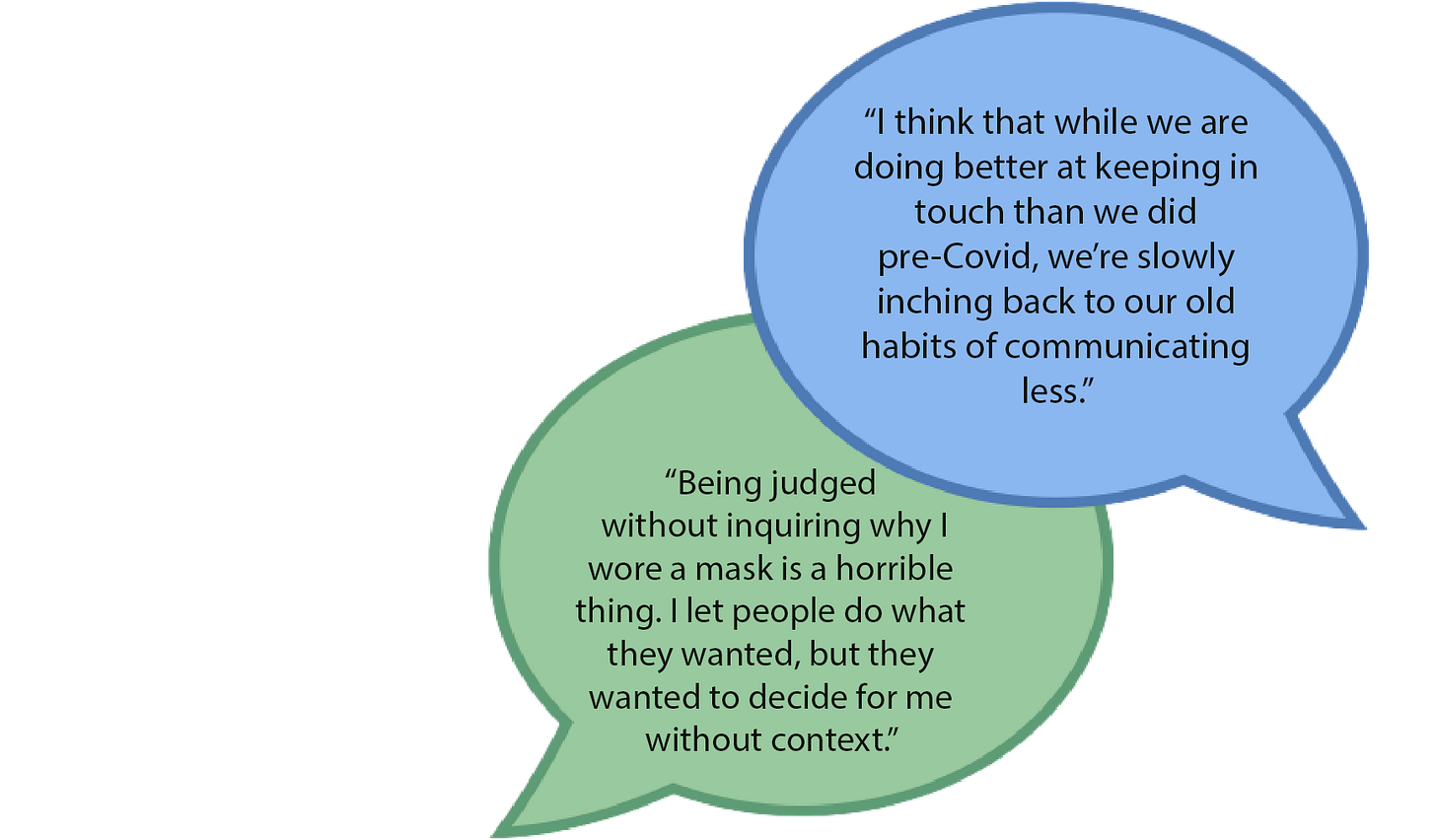How a Pandemic Changed Relationships
Our connections to people, places and things changed over the last three years. Here's a few true stories.

THE patient smiled as he motioned for me to enter his room. It was the middle of the week, in the middle of the day, and though the Florida sun was shining bright outside, the room was dim and the air was still.
His wife sat by the window, near the foot of the bed, and a tray of half-eaten food remained on the rolling table to his right. I introduced myself and asked how he was feeling. After a few pauses, the conversation quickly moved from topic to topic, and in minutes, it felt as though we’d been friends for years.
As a volunteer clergy member with the Spiritual Care Department at JFK Hospital in Atlantis, Fl., it was my job to visit with patients during their stay. They could be lonely, bored, receiving chemotherapy, or even near death. For three years, since 2017, I had walked the hospital floors and spent time with those who needed a friend, a coffee, a prayer, or even a new book to read. The word search paperbacks were a favorite.
But on this particular day, as I sat with the man and his wife, something had shifted, and yet, I didn’t fully comprehend what it was at the time. Though our conversation was light and cheerful, the patient’s wife mentioned something about a virus. There was an outbreak in China, she said, and other countries such as Canada, Vietnam and Australia had reported infections. The United States had confirmed at least five cases.
I had heard similar news stories and read the headlines, it was January 2020, after all, but the speculation about what might happen remained uncertain. No one knew, at that point, the pandemic disruptions and drastic changes up ahead, and most surely not me. And here’s the other thing I didn’t know: that was my very last day walking the hospital floors and spending time with patients. The pandemic changed everything.
“They knew now that if there is one thing one can always yearn for, and sometimes attain, it is human love.”
― Albert Camus, The Plague
By the time March rolled around, the world had gone into full-blown panic. Schools, stores, community centers, doctor’s offices, libraries, and yes, hospitals, closed their doors or drastically reduced the number of people permitted inside.
It was clear, according to authorities, that people should not be near people, and if they must, a mask was needed. In the short term, the guidelines made sense. In the long term – which was the case in many places in the world – the rules contributed, in part, to a breakdown in relationships including family members and close friends, neighbors and everyday interactions within the community.
Take, for example, the casual acquaintance – the coffee barista or the waiter at a local eatery – these are people in everyday life, easy to take for granted, but each, in their own way, provide meaningful companionship. This especially is the case for the elderly and those who may not have close friends or family. People have always needed people.
As I write this, I’m reminded of a nice woman named Priscilla. Of all the baristas in Wellington – and there are quite a few – no one poured a Caffè Americano quite like Priscilla. She worked mornings at the coffee counter inside Whole Foods, and occasionally, in the afternoons. Priscilla was always busy – preparing and grinding beans, scrubbing mugs and cups, cleaning counters, taking orders, and pouring drinks - but she was never too busy for her customers. To others, including myself, she was the friend you always wanted: kind, lighthearted, funny, a good listener.
But in 2020, and once the lockdowns began, the coffee counter closed. Not long after, Whole Foods physically removed the entire bar from the store, like it was never there. The fresh coffee, camaraderie, and Priscilla were gone–and so went the relationship.
According to a September 2020 Pew Research Center poll, 41 percent of Americans described negative associations with relationships early in the pandemic such as feelings of isolation and ‘losing touch’ with acquaintances, friends and loved ones. Yet, along with the negative experiences one would expect during a pandemic, positive changes also occurred. Sixty-seven percent mentioned at least one positive change in relationships since the pandemic began.
Though each perspective and situation is particularly personal, it’s impossible to deny that most Americans, even now in 2023, share similar relationship stories in the pandemic’s aftermath. This week, I surveyed a group of Americans about their experiences with friends or loved ones over the past three years and the results were evenly mixed. Slightly more Americans (49 percent) mentioned a change in relationships due to the pandemic, while a smaller share (46 percent) mentioned no change. Of the 49 percent, some 33 percent said these changes were negative, while 38 percent described them as positive. Roughly 29 percent of responses claimed both negative and positive changes in relationships as a result of the pandemic.
Here are some direct quotes from Americans who say the pandemic changed their relationships.
A Silver Lining
We’ve come to a closing act, of sorts, as the U.S. national emergency to respond to the COVID-19 pandemic ended April 10 of this year. President Biden had signed the measure behind closed doors. There were no parades, no celebrations, no one ‘broke the Internet’ with viral headlines. It was anticlimactic, business as usual, though the fragmented pieces and broken relationships remained. Perhaps these relationships were doomed long before the pandemic. Who knows?
But, equally important, are the relationships that survived and thrived. After three years, the world proved – in a nutshell – that it operates through people connecting with and caring for people, and in many ways, we understand more about the frailty of healthy human interaction and how quickly it can be lost.
And, lastly, one final note about my work at the hospital. There’s another reason why I never went back: I had a child – a pandemic baby – and indeed, a silver lining. Maybe one day I’ll walk the floors again and visit with patients, but for now, my companionship is needed elsewhere.
To read more about The Neighborly and the type of stories published, check out the ABOUT page.












I really like hearing your article read in your own voice. Hope you will provide that same for future Substack writings. Thanks!
Such a good observation upon fragility, "the frailty of healthy human interaction and how quickly it can be lost."